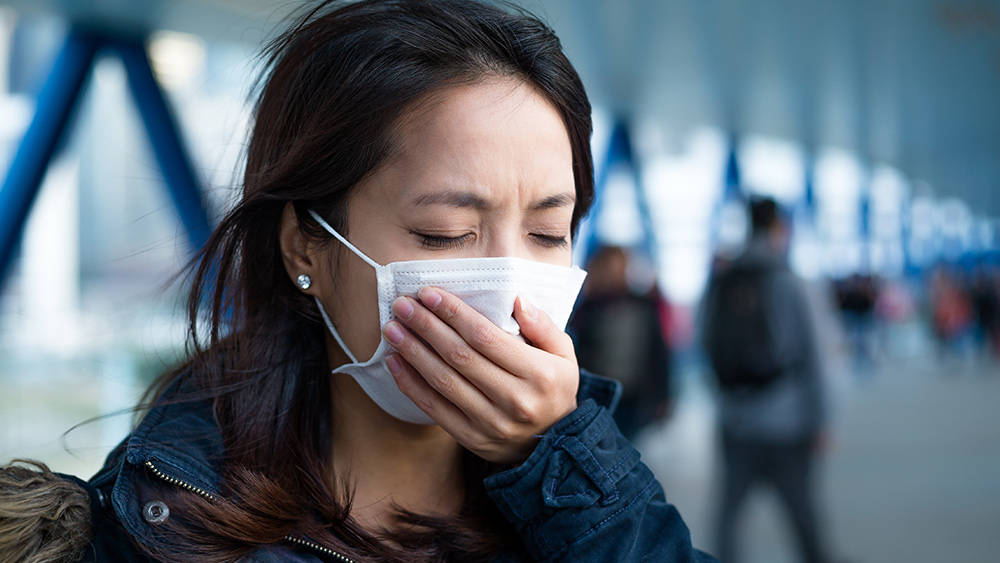Decaf vs. regular coffee: What are the different health benefits?
02/22/2020 / By Darnel Fernandez

Coffee is a fundamental aspect of many people’s lives. However, not everyone who drinks coffee likes the side effects of caffeine. In this case, decaf coffee is an excellent alternative that allows people to enjoy the rich taste of coffee without the jitters.
Is decaf better than regular coffee?
Decaf is short for decaffeinated coffee, which is similar in taste and appearance to normal coffee, but with significantly less caffeine. In particular, this coffee is derived from coffee beans that have had around 97 percent of their caffeine content removed. To remove caffeine, many manufacturers use various methods involving water and other chemicals like activated charcoal and ethyl acetate. The beans are decaffeinated before they are roasted and grounded, leaving its nutritional value to be almost identical to regular coffee.
However, it is important to note that decaf does not mean caffeine-free. Depending on the manufacturer and method used, the caffeine content varies, usually rounding off to about three milligrams per cup. Another study, published in the Journal of Analytical Toxicology, found that every 180 mL cup of decaf coffee contains around zero to seven milligrams of caffeine. Still, the caffeine content of decaf coffee is significantly lower than any form of regular coffee.
While studies have shown that decaf coffee consumption is generally safe and does not appear to have any significant harmful effects on one’s health, there are people who are concerned about the use of methylene chloride in certain decaffeination processes. Even small amounts of methylene chloride can temporarily slow down the central nervous system and affect hand-eye coordination. Other symptoms of exposure include headaches, drowsiness, irritability and light-headedness.
Health benefits of decaf coffee
Coffee is generally regarded as a healthful drink linked with numerous benefits – most of which can be attributed to coffee’s antioxidant levels and its other active substances. Moreover, there is a growing body of evidence supporting the health benefits of drinking decaf coffee. Here are some of them. (Related: Health benefits of decaf coffee.)
Type-2 diabetes and liver function
Drinking coffee, decaf or otherwise, is associated with a reduced risk of Type 2 diabetes – each cup is said to lower the risk by up to seven percent. While the effects of decaf on liver function have not been fully explored compared to regular coffee, a study published in the journal Hepatology associated decaf coffee consumption with reduced liver enzyme levels, which suggests a protective effect against conditions that hinder the function of the liver.
Aging and neurodegenerative diseases
Regular and decaf coffee were found to have protective effects against age-related mental decline in aged rats. Researchers from Tufts University fed 19-month-old rats one of five coffee-supplemented diets (0, 0.165, 0.275, 0.55, and 0.825 percent of the diet) for about eight weeks prior to assessment. They found that rats fed with a 0.55 percent coffee diet, which is equivalent to 10 cups of coffee, managed to perform better in psychomotor testing and working memory tasks compared to rats fed with a control diet. They also observed that those who ate a 0.165 percent coffee diet showed some improvement in reference memory performance. These findings suggest that coffee can reduce both motor and cognitive deficits that come with aging.
If you want to cut down on your caffeine intake, but still want to enjoy coffee, decaf is the perfect choice for you. Read more about the health benefits of drinking your cup of joe at FoodCures.news.
Sources include:
Tagged Under: aging, clean food, coffee, cognitive function, decaf, decaffeinated, functional food, liver health, mental decline, organics, phytonutrients, prevention, Type 2 Diabetes

















